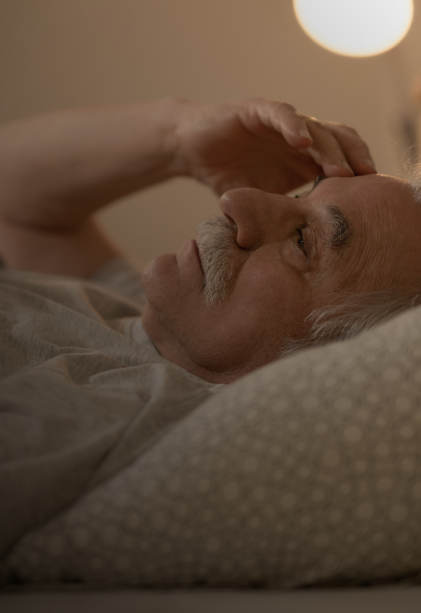• Frequent awakenings
• Breathing pauses (sleep apnea)
• Morning dry mouth
• Irritability & mood changes
• High blood pressure

Causes: Airway blockage due to relaxed throat muscles (obstructive sleep apnea)
Risk Factors: Obesity, smoking, alcohol use, aging, family history, nasal congestion, and certain medical conditions (e.g., high blood pressure, diabetes)
Tests: Sleep study (polysomnography), and airway examination
Medications: CPAP (Continuous Positive Airway Pressure) therapy, oral appliances, or surgery in severe cases
Lifestyle: Weight loss, avoiding alcohol and sedatives, changing sleep position, and treating nasal congestion
- Use a CPAP machine as prescribed
- Maintain a healthy weight to reduce airway obstruction
- Sleep on your side to prevent airway collapse
Q: Can sleep apnea go away on its own?
A: In some cases, weight loss and lifestyle changes can improve symptoms, but medical treatment is often needed
Q: What happens if sleep apnea is left untreated?
A: It can lead to high blood pressure, heart disease, stroke, and excessive daytime fatigue